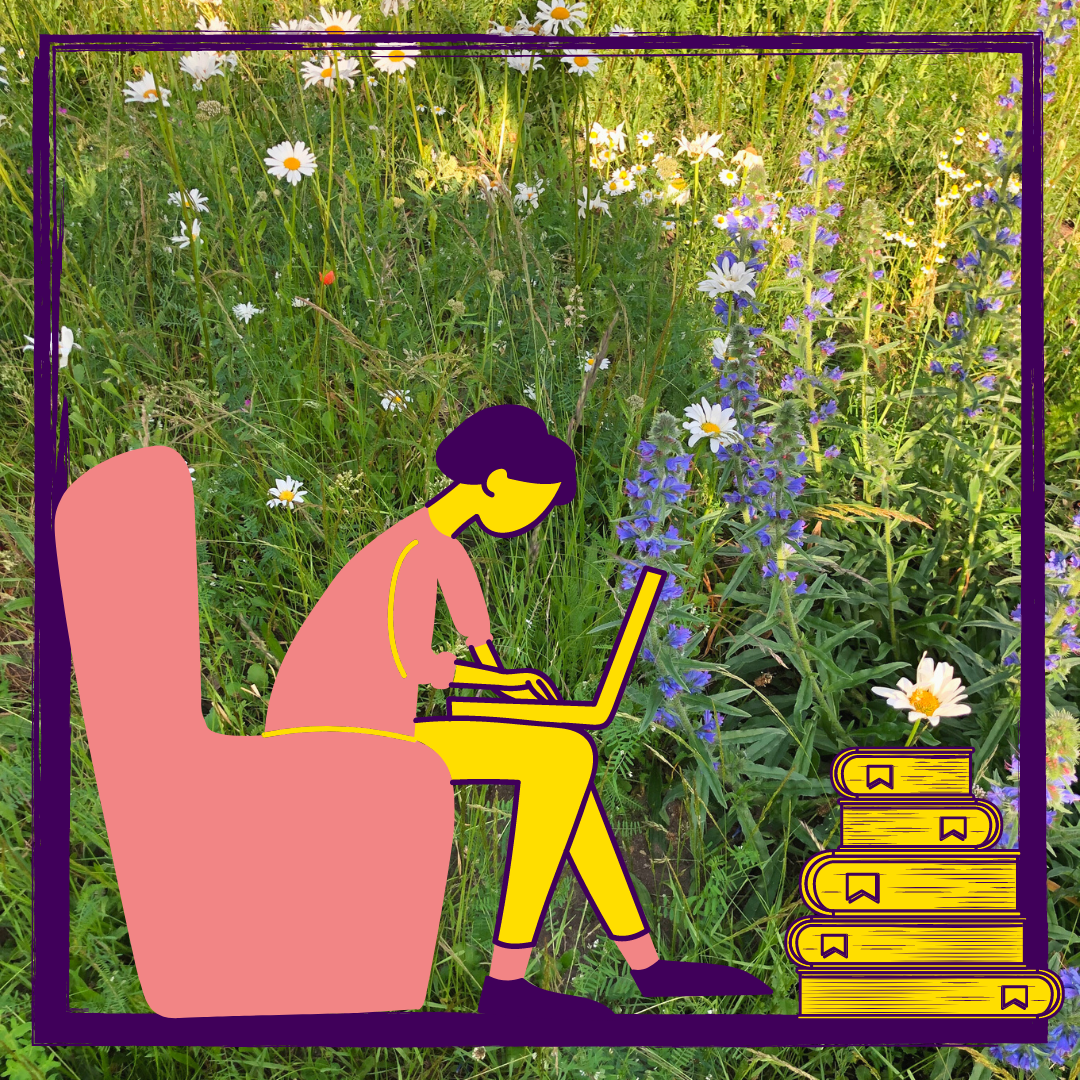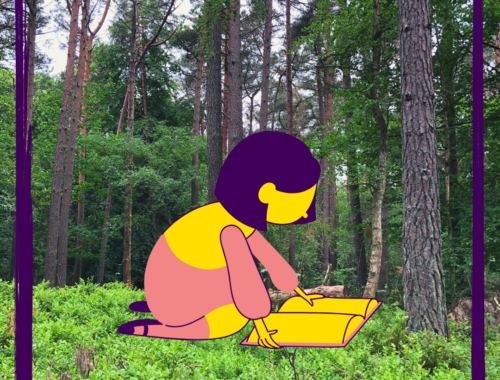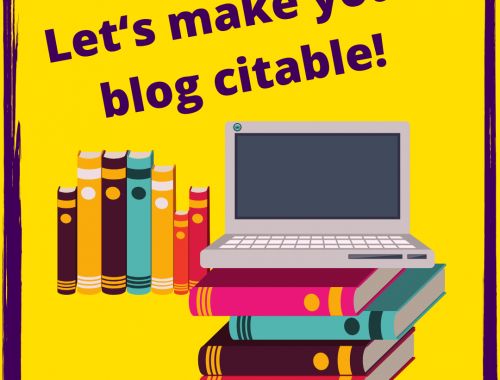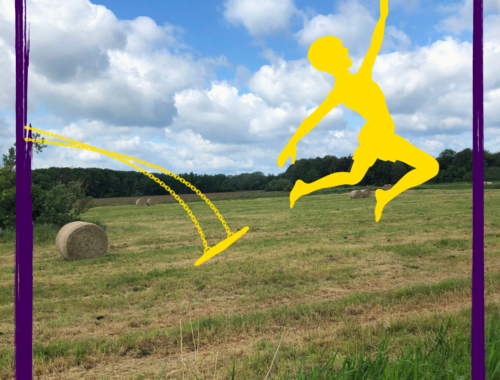
Electronic LITERATURE SEARCH: 5+1 TIPS TO FIND GOOD SCIENTIFIC SOURCES ONLINE
Inhalt / Content
Call up a search engine, enter a keyword, view the results – nothing easier than that, right? Yes, when you first come to University, you can usually already do electronic literature search. Nevertheless, you suddenly feel as if you had never done a REAL electronic literature search before in your life. Because in your search results, Wikipedia entries are at the top, then news articles, then YouTube videos or new blog posts. Only rarely is there anything that can meet the high standards of scientific research. But where do the good scientific sources hide? How do you get a feeling for recognizing them? And how do you get access to the very latest research texts?
After I have already explained in detail why citation is so important for us literary scholars, now I have 5 + 1 tips for your electronic literature research. Why 5 + 1? Because in the first 5, it’s all about how you use the findings of your searches in order to be able to enhance your research skills. And on top of that, I have a list of quite new research possibilities for you. Please note that the +1 is for specialist literature research and that it contains mostly German resources.
How to use findings from the Google literature search
At the beginning I claimed that the Google research does not lead you to scientific sources. But that is not always true. If you search very precisely, you can find relevant texts. For example, if you type in “Foucault”, you will get a list that is very similar to the one described above: Wikipedia entry, YouTube videos, newspaper articles, etc. But if you enter “Foucault surveillance and punishment”, among the commercial ads for this work you will also get links to scientific articles related to your search term. If you click on it, you will be taken to Google Scholar, the scientific version of the search engine. Here you can do two things.
- Get an overview of the disciplines from which something on your topic has been written.
- See which publishers, magazines and platforms are listed here. Compare and remember which publishers and platforms show up frequently in your electronic literature search. These are the ones where a lot of scientific material is published and/or made available. Platforms such as JSTOR or Researchgate also appear here, some of which provide free access to digital full texts for the scientific community.

How to use your findings for an electronic literature search in your local library database
Most University libraries offer an online catalog for digital literature searches. Now you might think that this is of no use to you, because it is the year 2020 and a pandemic makes library visits much more difficult than usual. But that is only partly true. Some libraries have now really upgraded. The Hamburg State and University Library, for example, has expanded licenses for digitally available texts on a large scale. This means that students can now also access a really large number of books digitally, even if they are not on campus.
How to refine your electronic literature search with good observations
But you can not only find books “to go” in your local library catalog, you can also make valuable observations during your research. Which titles are listed here? Which publishers are at the top? Here you will find mostly the large monographs and anthologies on your topic. Looking at them for a while you will quickly realize which publishers publish a lot on your topic.
Let your computer help you quote!
But these library catalogs can do even more! Often you will find a quote icon or a similarly designed button or text link somewhere, which helps you to quote. At the already mentioned Stabi Hamburg, such a button gives you a correctly formatted reference for each title in three different citation styles. But that is still not all. You can also export the whole thing so that you can upload it to your citation program. That means you can download the citation in the file format BibTeX for Zotero or in RIS format for Citavi for example. Of course you can also simply use your browser plugin if you have it installed.
The only shortcoming of electronic literature research via library catalog
So you can see that local libraries do a lot to support your electronic literature research. There is only one big pitfall for first-year students. You quickly get the impression that you have to read a lot of very long books to get a good bibliography for a term paper. Usually you don’t have to! If you have looked for your topic so precisely and focused that it really corresponds to the scope of a term paper, you will often find the insights you need in individual, specific chapters or in articles from anthologies as well as in papers or conference abstracts.
How to use findings from searching superordinate library catalogues
The common library network (GBV) is a union of many libraries in northern Germany. For many libraries – including Stabi Hamburg, for example – research here is the first step towards interlibrary loan. You can not only borrow books locally, but also have them sent from library to library via the network. Very practical!
But the GBV has even more for you. It provides a database of online resources, i.e. texts that are digitally accessible, and there is an essay database. Articles are super important in science. In the shorter format, very current insights into very specific areas of research are given. The format is used much more discursively than the monograph format, which takes longer to write and publish. This is why you will usually find the most current discussions in the shorter publication formats. So that’s why I think it is best to take a look at the GBV’s collection of essays at first.
How to use findings from bibliographies of other publications
This is a tip that I myself got during my studies and that really makes it easier to get started when it comes to finding good literature. Back then, we used to say “look in the bibliographies of books on your topic”, but since we are concentrating on digitally tracking down good literature here, I would like to recommend you: Look in the bibliographies of articles on your topic published in online magazines. Researchers who publish online are more likely to use online sources themselves than those who prefer the monograph format. This means that you will often find sources that are relevant for yourself and that could be virtually accessible. Of course, many scientists also publish across the board, so you could also find good online sources in books, but as we don’t have access to those at the moment, let’s stick to online magazines for a while.
How to use findings from publications of other researchers
Try and just check the website of your teacher. There you will usually find a category “Publications”. Now you can have a look if you can find any links. Found them? Then go ahead and click on them and see where it takes you. Maybe you will discover a new blog like this. Or perhaps you will be directed to a relevant online magazine for your teacher’s field of study. Once on the journal’s website, you can use the search function there to look for further articles on your topic.
No links in the publication list? Then try another teacher from the same subject area. By the way: The probability of finding what you are looking for (links to online publications) increases the further you move towards the digital humanities.
If you can’t find what you’re looking for, here are some relevant online journals in the field of digital humanities:
Journal for Digital Humanities – ZfDG
Digital Humanities Quaterly – DHQ
Journal of Cultural Analytics
Digital Scholarship in the Humanities – DSH (unfortunately not free of charge)
Use portals for your digital literature research
For some time now, portals have been developed for different departments to help with orientation in the jungle of online sources and materials. The Covid-19 pandemic has certainly accelerated this trend. A very good and relevant portal for German studies is GiN – German Studies on the Net. GiNDok, a database with almost 5,000 articles from German studies research, which you can view online or download directly, is probably of particular interest to you. For comparative literature, AVLdigital is a similar portal where you can start your electronic literature search.
A portal that was actually launched by the Forschungsverbund Marbach, Weimar, Wolfenbüttel on the occasion of the Covid-19 pandemic is digitale-lehre-germanistik.de Although this is actually intended for University teachers, students can also browse through content carefully curated by the research community. The nice thing about this portal is that you can also find alternative formats such as blogs and podcasts. Also this blog and the corresponding podcast are linked there, for example.
Evaluation of sources – 3 principles
In summary, I would like to recommend three principles for your electronic literature research, according to which you can evaluate the quality of a text:
- according to the principle of the good publisher, you can assume that a publisher (or journal) provides good sources if a lot of scientific material is published there.
- following the principle of the good library, you will find good scientific sources if you use catalogs of scientific libraries.
- following the principle of the good researcher means that publishers or magazines will probably provide good sources for a subject area if lecturers from that subject area have published there.
If you follow these three principles and the above 5+1 tips for your electronic literature research, you will soon find your way through the jungle of scientific publications!
Translated with www.DeepL.com/Translator (free version)
You May Also Like

Distant Reading – how much distance can we bear?
June 25, 2020
Academic blogging: How to make your blog citable
February 27, 2020

